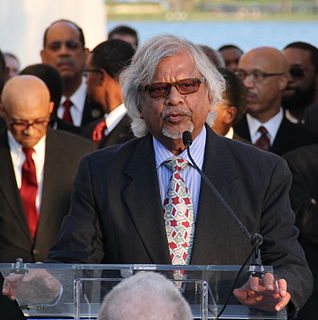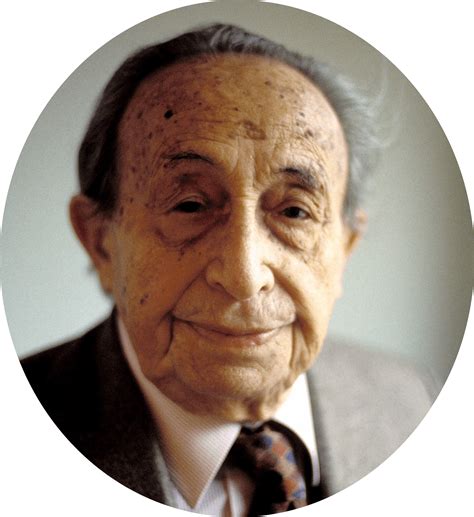A Quote by Rene Descartes
In philosophy, when we make use of false principles, we depart the farther from the knowledge of truth and wisdom exactly in proportion to the care with which we cultivate them, and apply ourselves to the deduction of diverse consequences from them, thinking that we are philosophizing well, while we are only departing the farther from the truth; from which it must be inferred that they who have learned the least of all that has been hitherto distinguished by the name of philosophy are the most fitted for the apprehension of truth.
Related Quotes
One can delineate the domain of philosophy however one likes, but in its search for truth, philosophy is always concerned with human existence. Authentic philosophizing refuses to remain at the stage of knowledge […]. Care for human existence and its truth makes philosophy a 'practical science' in the deepest sense, and it also leads philosophy—and this is the crucial point—into the concrete distress of human existence.
There are two threats to reason, the opinion that one knows the truth about the most important things and the opinion that there is no truth about them. Both of these opinions are fatal to philosophy; the first asserts that the quest for truth is unnecessary, while the second asserts that it is impossible. The Socratic knowledge of ignorance, which I take to be the beginning point of all philosophy, defines the sensible middle ground between two extremes.
All those formal systems, in mathematics and physics and the philosophy of science, which claim to give foundations for certain truth are surely mistaken. I am tempted to say that we do not look for truth, but for knowledge. But I dislike this form of words, for two reasons. First of all, we do look for truth, however we define it, it is what we find that is knowledge. And second, what we fail to find is not truth, but certainty; the nature of truth is exactly the knowledge that we do find.
The Greek word for philosopher (philosophos) connotes a distinction from sophos. It signifies the lover of wisdom (knowledge) as distinguished from him who considers himself wise in the possession of knowledge. This meaning of the word still endures: the essence of philosophy is not the possession of the truth but the search for truth. ... Philosophy means to be on the way. Its questions are more essential than its answers, and every answer becomes a new question.
Truth should be the first lesson of the child and the last aspiration of manhood; for it has been well said that the inquiry of truth, which is the love-making of it, the knowledge of truth, which is the presence of it, and the belief of truth, which is the enjoying of it, is the sovereign good of human nature.
The kind of knowledge which is supported only by observations and is not yet proved must be carefully distinguished from the truth; it is gained by induction, as we usually say. Yet we have seen cases in which mere induction led to error. Therefore, we should take great care not to accept as true such properties of the numbers which we have discovered by observation and which are supported by induction alone. Indeed, we should use such a discovery as an opportunity to investigate more exactly the properties discovered and to prove or disprove them; in both cases we may learn something useful.
Satyagraha is the pursuit of truth. My grandfather believed that truth should be the cornerstone of everybody's life and that we must dedicate our lives to pursuing truth, to finding out the truth in our lives. And so his entire philosophy was the philosophy of life. It was not just a philosophy for conflict resolution, but something that we have to imbibe in our life and live it all the time so that we can improve and become better human beings.
As children's inquiries are not to be slighted, so also great care is to be taken, that they never receive deceitful and illuding answers. They easily perceive when they are slighted or deceived, and quickly learn the trick of neglect, dissimulation, and falsehood, which they observe others to make use of. We are not to intrench upon truth in any conversation, but least of all with children; since, if we play false with them, we not only deceive their expectation, and hinder their knowledge, but corrupt their innocence, and teach them the worst of vices.
A Christian boy or girl can learn mathematics, for example, from a teacher who is not a Christian; and truth is truth however learned. But while truth is truth however learned, the bearing of truth, the meaning of truth, the purpose of truth, even in the sphere of mathematics, seem entirely different to the Christian from that which they seem to the non-Christian; and that is why a truly Christian education is possible only when Christian conviction underlies not a part but all, of the curriculum of the school.
We have hitherto considered only two possibilities: that the received opinion may be false, and some other opinion, consequently, true; or that, the received opinion being true, a conflict with the opposite error is essential to a clear apprehension and deep feeling of its truth. But there is a commoner case than either of these; when the conflicting doctrines, instead of being one true and the other false, share the truth between them.
I drifted into a career in academic philosophy because I couldn't see anything outside the academy that looked to be anything other than drudgery. But I wouldn't say I 'became a philosopher' until an early mid-life crisis forced me to confront the fact that, while 'philosophy' means 'love of wisdom', and 'wisdom' is the knowledge of how to live well, the analytic philosophy in which I had been trained seemed to have nothing to do with life.
Since philosophy is the art which teaches us how to live, and since children need to learn it as much as we do at other ages, why do we not instruct them in it? .. But in truth I know nothing about the philosophy of education except this: that the greatest and the most important difficulty known to human learning seems to lie in that area which treats how to bring up children and how to educate them.
Only the truth and its expression can establish that new public opinion which will reform the ancient obsolete and pernicious order of life; and yet we not only do not express the truth we know, but often even distinctly give expression to what we ourselves regard as false. If only free men would not rely on that which has no power, and is always fettered upon external aids; but would trust in that which is always powerful and free the truth and its expression!
Philosophy, for Plato, is a kind of vision, the 'vision of truth'...Everyone who has done any kind of creative work has experienced, in a greater or less degree, the state of mind in which, after long labour, truth or beauty appears, or seems to appear, in a sudden glory - it may only be about some small matter, or it may be about the universe. I think that most of the best creative work, in art, in science, in literature, and in philosophy, has been a result of just such a moment.








































